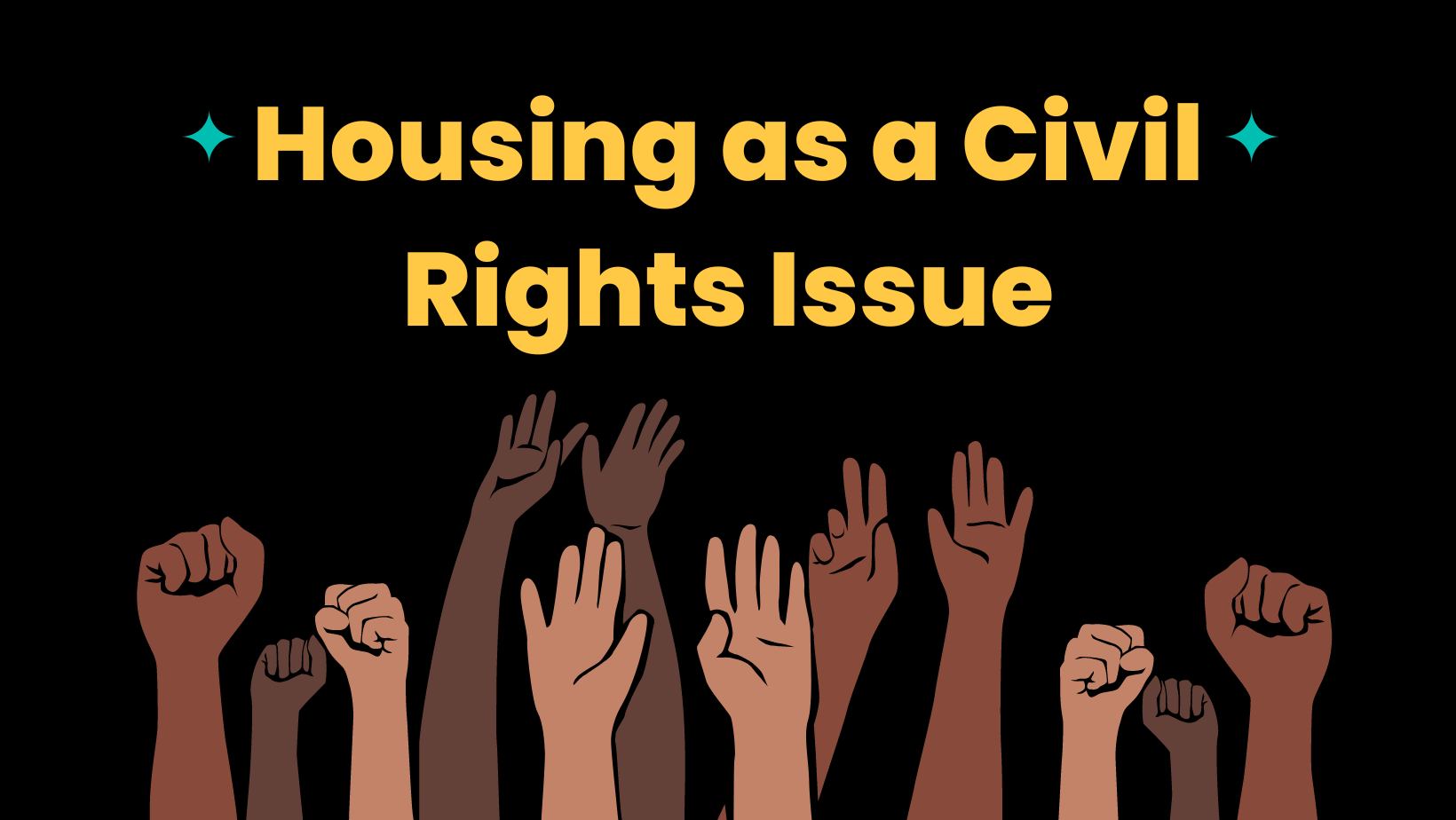The fight for equality, dignity, and justice is at the heart of the struggle for civil rights. Historical battles for civil rights have focused on issues like voting rights, education, and employment; today, housing stands as a cornerstone for civil rights efforts. To understand the intersection of housing and civil rights, we must examine the historical context, current challenges, and the ongoing fight for housing equity.
Historical Context
The United States’ history of housing segregation is deeply intertwined with the legacy of racial segregation and systemic inequality. From slavery and Jim Crow laws to redlining and racially restrictive covenants, Black Americans and other marginalized communities have long been denied equal housing opportunities. As we discussed in a previous blog post [insert link to April post here], the landmark supreme court decision in Shelly v. Kraemer (1948), which struck down racially restrictive housing covenants, marked a crucial milestone in the legal battle against housing discrimination, even though many who challenged continued race-based housing patterns were often met with resistance, hostility, and even violence. Subsequent legislation including the Fair Housing Act of 1968, aimed to dismantle segregation and promote fair housing practices. Despite these efforts, disparities persist, perpetuating cycles of poverty and exclusion.
Current Challenges
Housing is a pressing civil rights issues to this day; millions of individuals and families continue to face housing insecurity, discrimination, and displacement. Communities of color, people with disabilities, low-income households, LGBTQ+ individuals, women, and other protected classes continue to be disproportionately affected by discriminatory practices and the affordable housing crisis. Structural barriers, like exclusionary zoning policies and predatory lending practices, further exacerbate disparities. The COVID-19 pandemic exacerbated these inequalities, further highlighting the urgent need for equitable housing policies and protections.
The Intersectionality of Housing and Civil Rights
To understand the complexities of housing inequality, it is essential to recognize the intersectionality of housing and civil rights. Discrimination based on race, gender, sexual orientation, disability, and socioeconomic status intersect creating unique experiences of housing injustice for protected classes under the Fair Housing Act. Addressing these intersecting forms of oppression requires an inclusive and intersectional approach that centers the voices and experiences of marginalized communities.
Moving Forward
As we confront the urgent challenges of housing inequality, it is imperative that we prioritize housing as a civil rights issue. This requires a concerted effort to dismantle systemic barriers, challenges discriminatory practices, and advance policies that promote housing equity and justice for all people. By standing in solidarity with marginalized communities, advocating for meaningful change, and amplifying the call for housing as a human right, we are building a future where everyone has access to safe, affordable, stable, and dignified housing.


